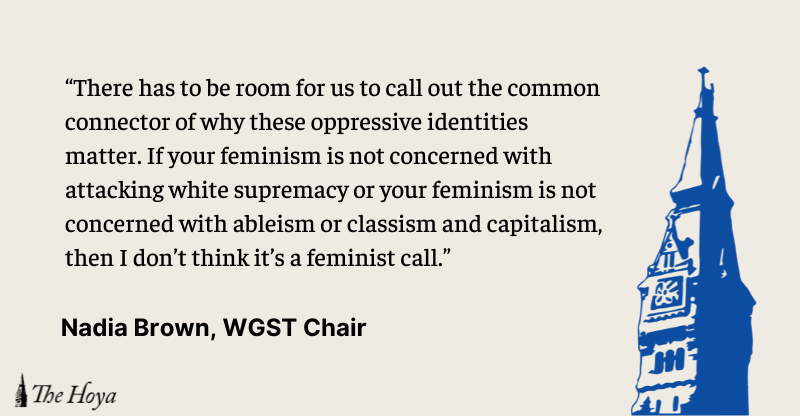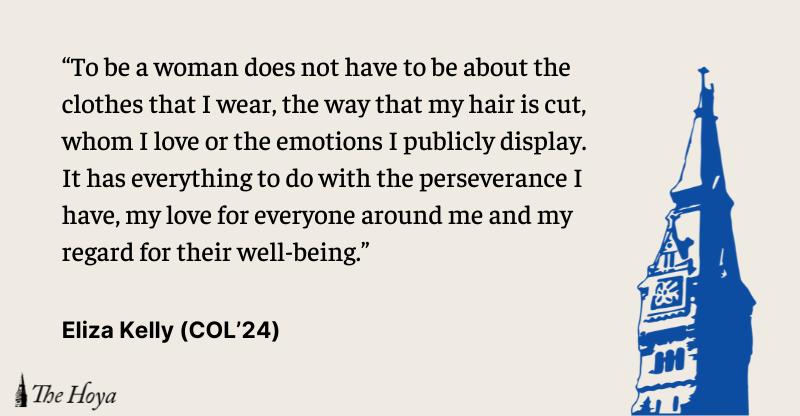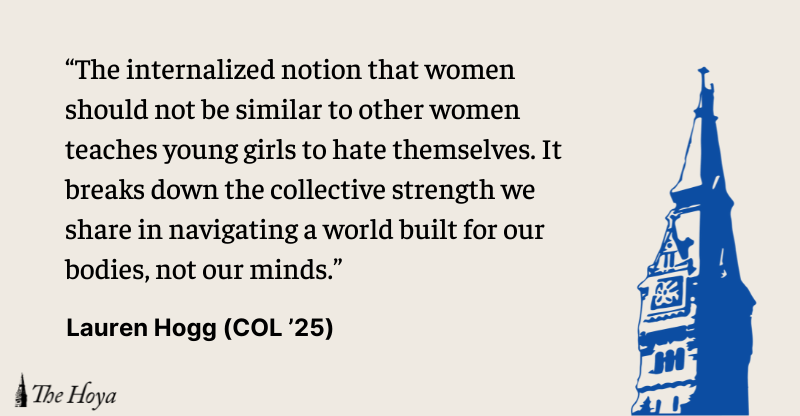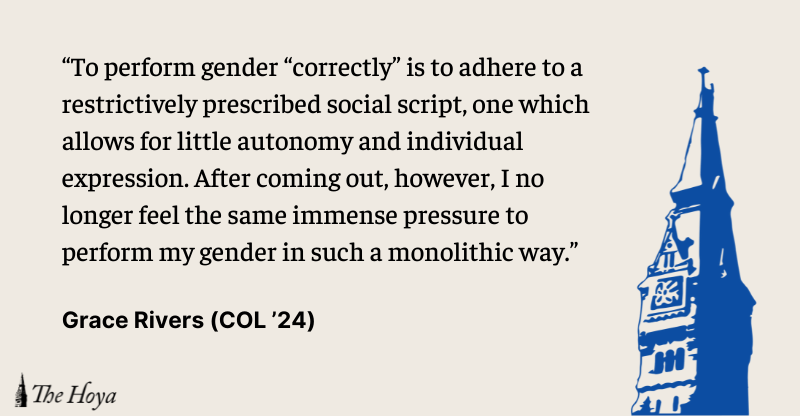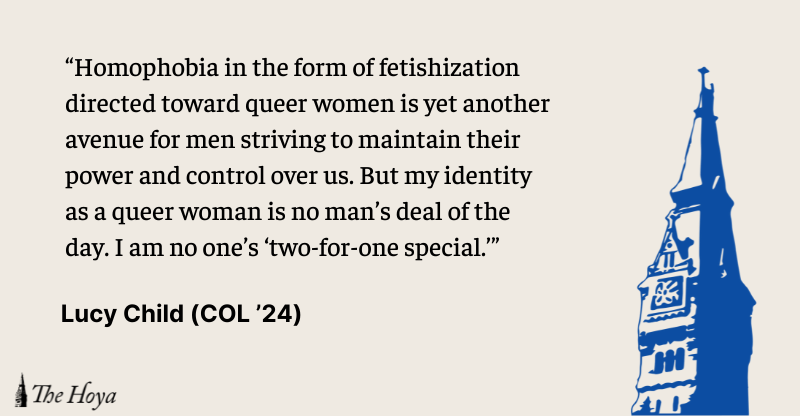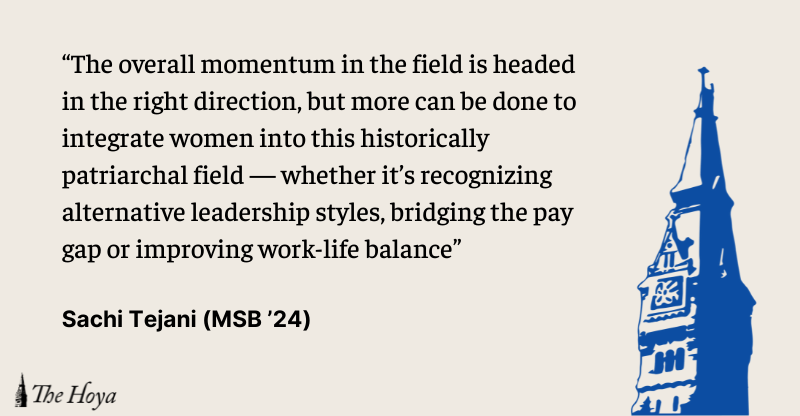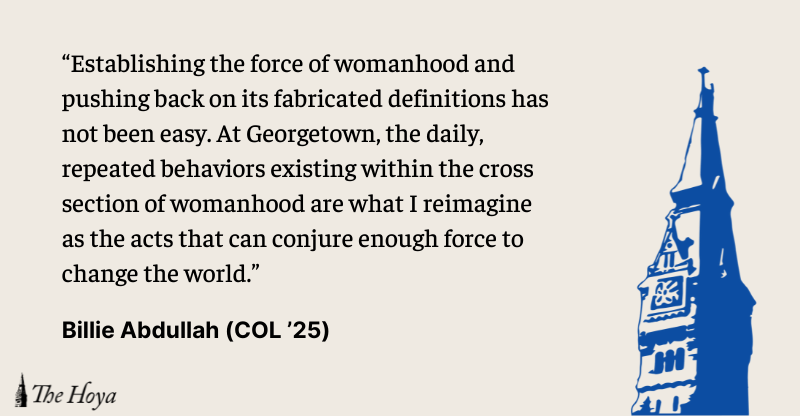In honor of Women’s History Month, The Hoya sat down with Professor Nadia Brown, chair of the women’s and gender studies program, to discuss identity, gender and institutional challenges women’s studies programs face in higher education. This interview has been edited for length and clarity.
In thinking about Women’s History Month, which women, past or present, inspire you most?
I think about Harriet Tubman who is not necessarily thought of as a women’s leader, but definitely a suffragist, someone who is the first woman to lead troops in the Civil War. She speaks to the capability of people, particularly Black women to use your lot in life to make this world a better place.
I am also thinking about the women that we often don’t include in our typical discussions of Women’s History Month — someone like Pauli Murray who was this really transformative figure, or Marsha P. Johnson who led Stonewall.
What are the most pressing issues that women and women’s studies programs face at Georgetown?
Some of the things women’s studies programs at universities have suffered from is a lack of institutional support. Students want the classes, students are signing up for things, but the programs don’t have the same kind of support as the government or history departments. These programs are usually underfunded, lesser acknowledged units of the College.
Universities need the value that we bring, but they still undercut it. They’re not funding us, they’re not giving us lines. There are inequities that happen throughout the university, but they are more pronounced in these programs.
How does the idea of a fluid gender spectrum factor into organizations like the Women’s Center at Georgetown, particularly in terms of the inclusion of transgender women and nonbinary people?
I don’t want to sound like feminists have always been welcoming to transgender or nonbinary people because that just isn’t factually true. But there has to be space to allow people that are femme-identified or people who were assigned female at birth to benefit from traditional spaces like the Women’s Center or traditional women’s study spaces and make room for them.
I think the problem is when we have this very prescriptive notion of what it means to be a woman. We let certain people in and not others and try to erase other people’s experiences by conflating gender as one thing like ‘we know it when we see it.’
But that also means it must be intentional for people who are cisgender to really recognize that there are different ways that gender is performed and that people live gender in various ways.
The other part is to be very intentional in asking people with different gender identities to come in and be part of these spaces. We can’t change and be more inclusive if they are not there. … We can be transformative and be more inclusive by actually listening to folks who have different identities and making room at the table.
How can we conceptualize women’s identity and gender identity in general as intersecting with other identities, be it race, sexuality, etc.?
We have to recognize that there are different intersecting vectors of people’s identities that are politically salient and not minimize them. Just because they have different identities does not mean that they are not valuable or that we can’t learn from them and oftentimes we can learn most from people who have differently situated knowledge.
There has to be room for us to call out the common connector of why these oppressive identities matter. If your feminism is not concerned with attacking white supremacy or your feminism is not concerned with ableism or classism and capitalism, then I don’t think it’s a feminist call. There is no room to think about a feminist issue as simply just a gender issue.
As Women’s History Month ends, what messages, feminist goals or issues would you like to highlight?
I want to leave you with something grandiose, but I am angry about how women have been used and how the Republican Party is leveraging women. I think we’re going to see women’s and gender issues be weaponized, for instance, with these anti-trans bills popping up all over the country. They [the Republican Party] are making legislation that’s really going to go after a handful of kids that are already stigmatized, that are already marginalized, to protect this white, middle class femininity.
Don’t take the bait.


